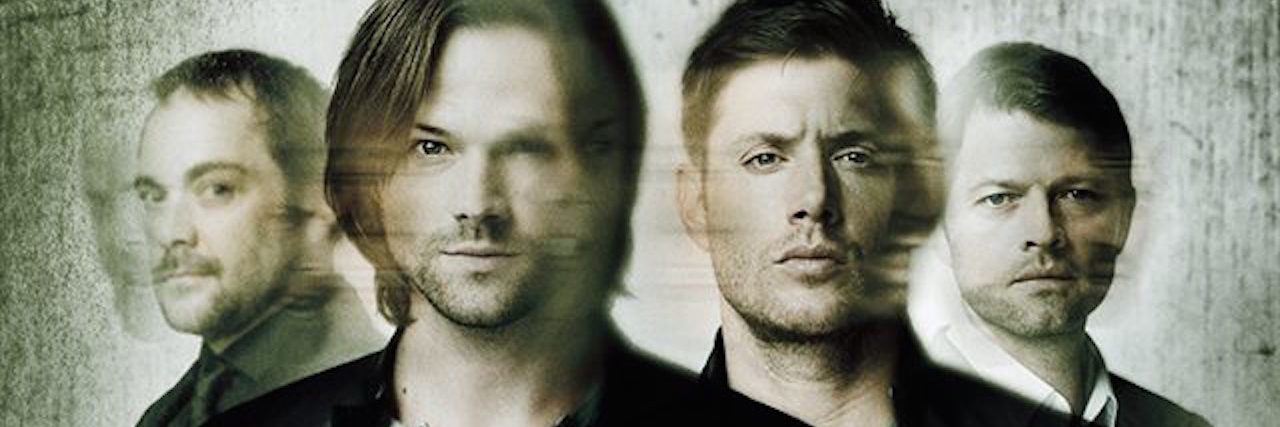The Borderline Personality Disorder 'Habit' I Realized I Had After Watching 'Supernatural'
“Supernatural” has fast become one of my favorite shows, and the fact that all of the cast openly talk about mental health — especially Jared Padalecki with his own personal struggles — just made me love the show even more.
When one of my favorite characters returned this season, I was stoked — mostly because I love the acting of Richard Spieght Jr. and the comedy value he brings. For the most part, when I’m depressed and unable to find any happiness in life, RSJ’s work as Gabriel in both the show and the Pepsi ads never fail to bring a smile on my face.
What really surprised me was the backlash at his response to being saved in the episode 13×18.
I get it, he’s a fictional character, so who cares about how he returns? That’s an argument for a different forum, but it’s important to know that there was some issue with his return. Mostly because he bounced rather than stayed to help the main characters defeat the Big Bad of the season.
So, overly obsessed me started defending this character’s choice to leave. He had been tortured and he knew that he couldn’t handle any more — he wasn’t healed, he was traumatized and he needed time to be able to come to terms with what happened. I was getting annoyed with people’s constant criticism of this fictional character’s decision to focus on healing rather than jumping in at the deep end when he knew he wouldn’t be useful, and given “Supernatural’s” frankly unimpressive record on dealing with trauma and, in some cases, the mental health of the characters within the show, I was just impressed that there was a sense of realism in there.
I, in the end, backed out of these frankly really petty and stupid arguments because, at the end of the day, Gabriel is fictional. But when discussing this with a friend, she posed an important question.
“How is it that you are able to defend a fictional character’s right to personal boundaries when you are unable to even defend your own?”
She had a good point.
I have borderline personality disorder and bipolar type II as my two main diagnoses. As a result, I tend not to stick to my boundaries, of which I have very few. If a friend is in need, my health becomes second to them and, due to this, I tend to harm myself by setting my mental health back 17 steps while trying to help a loved one progress by one.
I have thought long and hard over this and, although it doesn’t make sense, the only reason I could think of that I don’t stand up for myself, but rather focus all my energy on helping those who can’t stand up for themselves, is because I’m not worth saving. I’m a lost cause. I mean, multiple health (general and mental) professionals have told me so — who am I to disagree. But those who I care about — real and fictional — are worth everything, so I defend them with every cell in my body.
The more I thought about it, the more it didn’t make sense. I was praising a character for doing the very thing I demonize myself for doing. Whenever I tried to say “No, I’m sorry, but I can’t do this,” I was instantly labeling myself as a bad friend and being selfish, but the moment someone who doesn’t exist has the courage to do the same I’m instantly praising them for their decisions.
Needless to say, I kept giving myself major whiplash.
The more I looked back on this, the more I realized I had allowed this to happen my entire life. Friends would put in boundaries and I’d respect them, but I’d allow them to walk all over me to the point of neglect. I have failed exams and dropped out of school for friends because they are worth everything, and I’m desperate not to lose them. Whenever I questioned myself on my actions, I just simply repeated what I had been told and thought my entire life: Your friends are in distress and you are focusing on yourself? How selfish.
I was beginning to get annoyed with myself, so I decided to make a decision. If I can praise a fictional character for saying “No, not now, I need my space,” then I can too.
A big issue with BPD is empathy, and something I think many empaths need to learn is that it’s OK to feel alongside someone, as long as it doesn’t affect you negatively in the long run. We need to learn to let go and be able to look at a situation and go “No, I’m sorry, I love you, but I just can’t do this because it will hurt me to do so.” It’s OK to be selfish and bounce. It’s OK to put in boundaries and stick by them, but also try to bend them on your good days and go “OK, I can help you with this for a while.”
It’s about balance.
And although it’s something I still need to learn, I’m glad I learned it in this way, because if Gabriel from “Supernatural” is worth being treated well by others and himself, then so am I.
Lead image via “Supernatural” Facebook

